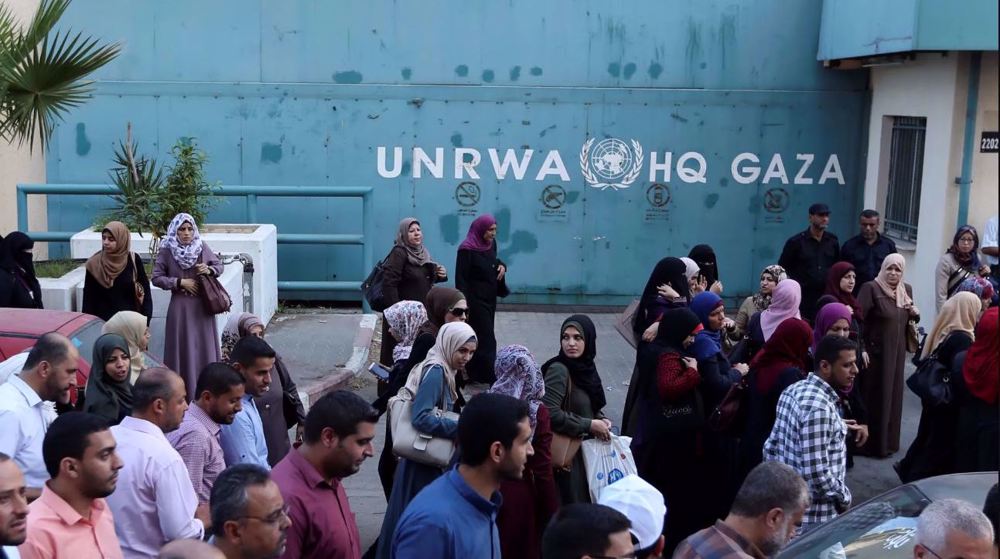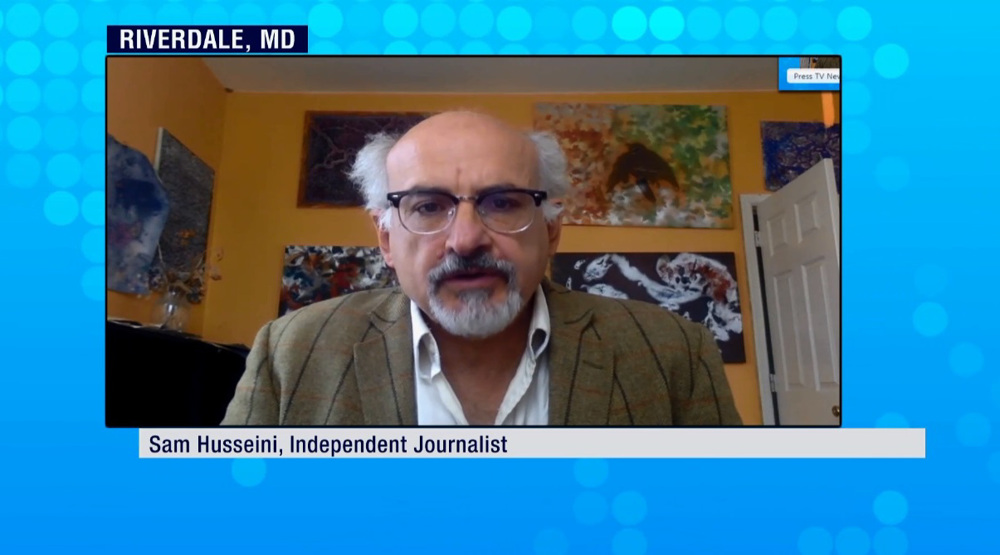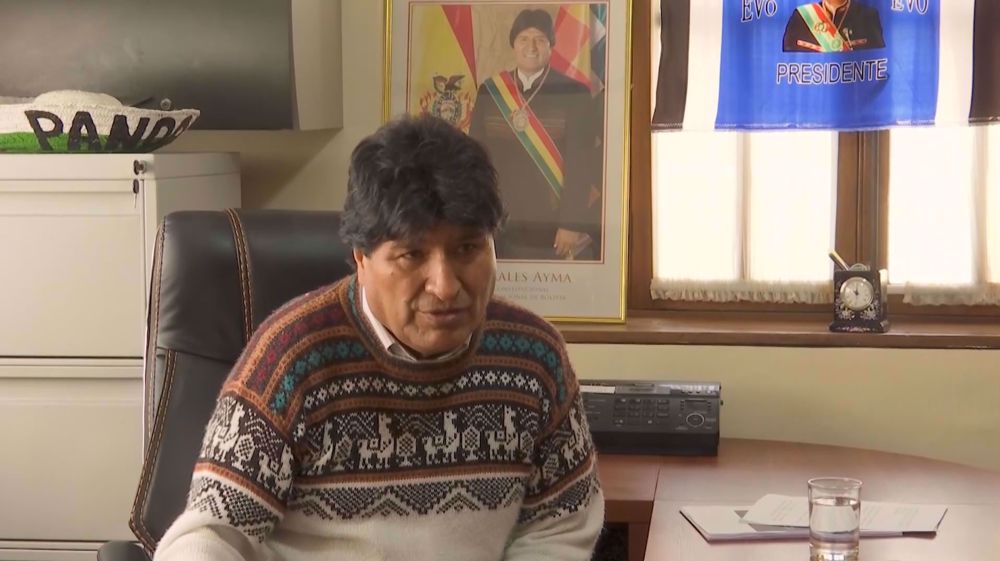Many Iranians suspicious of US true aims: Pundit
Press TV has conducted an interview with Foad Izadi, a professor at the University of Tehran, to ask for his opinion on the remarks made by Iranian President Hassan Rouhani about attempts by great powers to infiltrate into the country after the conclusion of nuclear talks.
What follows is a rough transcription of the interview.
Press TV: Well, the president touched on a lot of different topics, whether domestically or dealing with international issues. I want to look at what he talked about dealing with infiltration, about the US infiltrating as one of the reporters asked ‘what would he do’ because American officials have been alluding to actually after the nuclear agreement having more and more influence inside of Iran and ultimately having a change, causing a change with the government as far as perspective because of actually that cultural infiltration. Your take Mr. Izadi.
Izadi: Well, the problem that we have is that both Republicans and Democrats in the United States, when they talk about Iran, they talk about regime change more or less. The Republicans are more outspoken about it; the Democrats more or less say the same thing. When President Obama talks about seeing change in Iran, when he talks about seeing a new leadership in Iran, when he talks about international companies coming to Iran and having a sort of exchange with people in Iran that will result in Iran changing its behavior, when we have statements like these coming out of Washington, a lot of people here, both people in the government, outside the government, become suspicious of the true aims and objectives of American officials.
It is not… for the last 36 years, we have the US government trying to overthrow the Islamic Republic. Every year, hundreds of millions of dollars are spent officially and unofficially in what the US government calls democracy promotion, which is another terminology for regime change.
They focus on Iran, they spy on Iran. So when we have statements like these, money being spent on this issues, both in term of rhetoric and practice, we have the US government trying to basically change the government in Iran, you have people that are going to be worried about it and you are going to have Iranian government officials that are going to talk about it.
The Leader of the country, Ayatollah Khamenei, talked about this several times in the past two or three months, president talked about it today, we have people basically watching what is going on and are concerned about what the aims of the US government is after the nuclear agreement.
Press TV: Do you see it as just being... Of course Mr. Rouhani talked about the US government today but as it appears that the country has opened up more towards the Western countries mainly European companies and countries right now, but does that in itself contradict the other at all? On the one hand, we are talking about being very protective of the country, being careful that is not infiltrated not only by the US but by the West in general and on the other hand closer relations with these Western governments and companies; though Mr. Rouhani said today that one does not contradict the other because it actually complements with having a stronger economy. How do you see it Mr. Izadi?
Izadi: There is no problem with Iran being open to the outside world. Iran has been open to the outside world. In fact it was the other side that was trying to close Iran by sanctioning Iran. So Iran has no problem with normal trade practices. In fact, the other side was the party that wanted Iran to be isolated in terms of trade, in terms of economy. The aim of sanctions was to isolate Iran and Iranian government has been working to lift these sanctions because Iran wants to have normal open relations with the outside world. So there is no problem with that.
The problem comes when you have the US government basically using this new agreement as a tool to do what the US government does in other countries. What happens in a lot of countries, this is sort of a new imperialism, the new method of influencing foreign governments, is that multi-national corporations enter a country; they find local contacts, native contacts. These people that are links between multi-nationals and indigenous people in a certain country have a huge financial backing in the multi-national. This financial backing, this huge money gets close to government officials in a lot of countries and this is how these government officials are controlled by big corporations that are actually controlling the governments in the West.
Press TV: So can Iran be different, sir?
Izadi: Iran can be different if the Iranian government officials and people realize how the United States operate in the last 20, 30 years. Before, say 60 years ago, they would have a coups d'état, they would install a king and then the king would be a dictator and they would control the country using the king.
Now, they do not do that in Iran especially. Nobody is expecting a king to govern Iran again. We have the son of the previous king that has no place in Iran, people laugh at him when he speaks, so they have to come up with some other ideas if they want to change the government of Iran.
So, this is sort of wishful thinking that the other side has, that by having this agreement, by sort of engaging Iran more in terms of economy, they can do to Iran what they did to Soviet Union; what they do not realize that Iran is very different with Soviet Union and the practices that they have previously with other governments, with other countries, is not really going to work with Iran because Iran’s government is actually elected by Iranian people; and so a lot of practices they did in other countries is not going to apply to Iran.
Iraqi resistance strikes ‘vital’ target in Eilat after Israeli attacks PMU base
N. Korea conducts cruise missile warhead test: State media
Israeli airstrike kills at least 7 people in Rafah
VIDEO | Iranians hold nationwide demos in support of IRGC
Syria condemns US veto of Palestine UN membership resolution
Iraqi resistance forces hit Israeli Ovda air base
Hackers break into Israeli military’s computers, access trove of documents
Tulkarm Brigade commander killed by Israeli forces in raid on refugee camp









 This makes it easy to access the Press TV website
This makes it easy to access the Press TV website